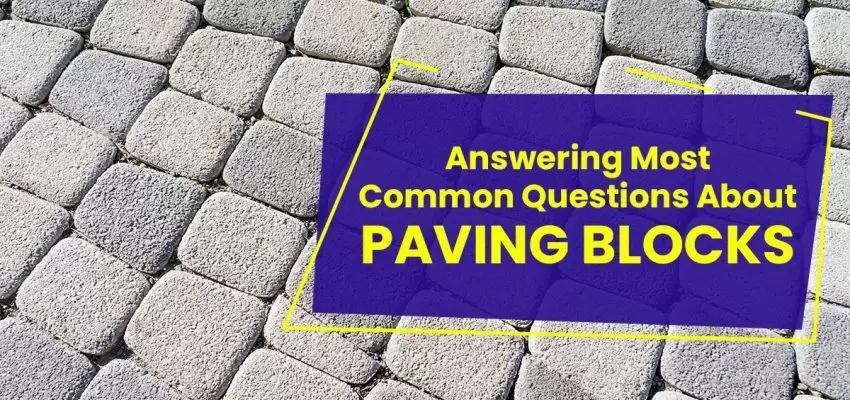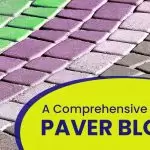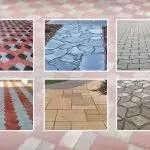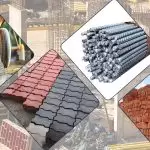Paver blocks offer a multitude of advantages for construction projects, making them a popular and practical choice. Their easy installation process, requiring minimal effort and resources, is particularly appealing for those looking to enhance outdoor spaces without extensive time or financial investments. The cost-effectiveness of paver blocks stems from their longevity and versatility, as they prove durable in various applications, reducing the need for frequent replacements. Moreover, their environmentally friendly properties, including resistance to extreme weather conditions and fireproof features, contribute to their rising popularity in construction.
Post your Requirement
The ease of maintenance is another notable benefit, with paver blocks being easy to clean and replace individually if damaged, making them an ideal choice for busy homeowners seeking both durability and low maintenance. Crafted from a combination of concrete, sand, and gravel, these blocks are highly durable, ensuring a robust surface for driveways, patios, walkways, and pool decks that not only look appealing but stand the test of time. In summary, the use of paver blocks combines simplicity, cost-effectiveness, environmental resilience, and durability, making them a preferred and reliable option for a variety of outdoor construction projects.
Common Questions About Paving Blocks
Discover the world of paving blocks in this informative blog as we delve into common questions surrounding these versatile construction elements. From understanding their unique characteristics to exploring the diverse types available, we aim to provide comprehensive insights into why paving blocks are a popular choice for enhancing outdoor spaces.
Q. What are paving blocks, and how are they different from regular bricks or concrete slabs?
A. Paving blocks, also known as pavers, are precast units designed for exterior hardscaping. Unlike traditional bricks or concrete slabs, pavers are interlocking, creating a stable and durable surface for various outdoor areas. Their design facilitates flexibility and ease of installation, setting them apart from the rigid structures of bricks or concrete slabs.
Q. What are the different types of paving blocks available in the market?
A. There are two main types of paving blocks: concrete paving blocks and clay paving blocks. Concrete blocks are mass-produced, and available in standard sizes and various colors, while clay blocks, also known as bricks or cobbles, offer a more natural appearance and are available in rectangular shapes.
Q. How do the shapes of paver blocks differ, and what is their significance?
A. Paver blocks come in four generic shapes (Types A, B, C, and D), influencing how they interlock during installation. The shapes impact both the stability and appearance of the paved surface. For example, Type A blocks have plain vertical faces, while Type D includes ‘L’ and ‘X’ shapes with curved or corrugated faces, adding both structural support and aesthetic variety.
Q. What are the key features that make paver blocks a popular choice for outdoor spaces?
A. Paver blocks offer an interlocking design, providing stability and preventing movement over time. They come in various shapes, sizes, and colors, allowing for creative design options. Paver blocks are durable, capable of withstanding heavy loads, and are easy to install, making them suitable for both DIY projects and professional applications.
Q. In what outdoor spaces can paver blocks be used?
A. Paver blocks are versatile and commonly used in parking areas, road streets, sidewalks, decks, and kitchen spaces. They are suitable for both heavy-duty applications, such as driveways, and aesthetic projects like pathways and patios, making them a flexible and widely applicable choice for outdoor construction.
Q. How do factors like material, size, and design complexity affect the cost of paver blocks?
A. The cost of paver blocks varies based on factors such as the material used (concrete or clay), quality, size, design complexity, brand reputation, and regional availability. Larger and thicker pavers, intricate designs, and premium finishes contribute to higher costs, providing consumers with options that align with their specific project requirements and budget constraints.
Q. Why should one consider McCoy Paver Blocks, and what benefits do they offer?
A. McCoy Paver Blocks are known for their nonslip and anti-skid features, enhancing safety in various applications. They come in various types, including chequered tiles, interlocking tiles, hexagons, and more, offering a diverse range for different design preferences. McCoy Paver Blocks are also affordable, providing a wide variety to suit different budgets while maintaining quality and performance standards.
Q. Why choose McCoy Mart for purchasing paver blocks?
A. McCoy Mart serves as a comprehensive platform for individuals looking to purchase paver blocks. It offers a diverse range of materials, considering factors like durability, variety preferences, and cost. With McCoy Mart, users can find everything they need in one place, streamlining the process of selecting the right paving blocks without involving middlemen, ensuring a convenient and efficient purchasing experience.
This set of FAQs provides valuable insights into the world of paving blocks, addressing common queries and considerations for those looking to enhance their outdoor spaces with these versatile and aesthetically pleasing elements.























Post A Comment